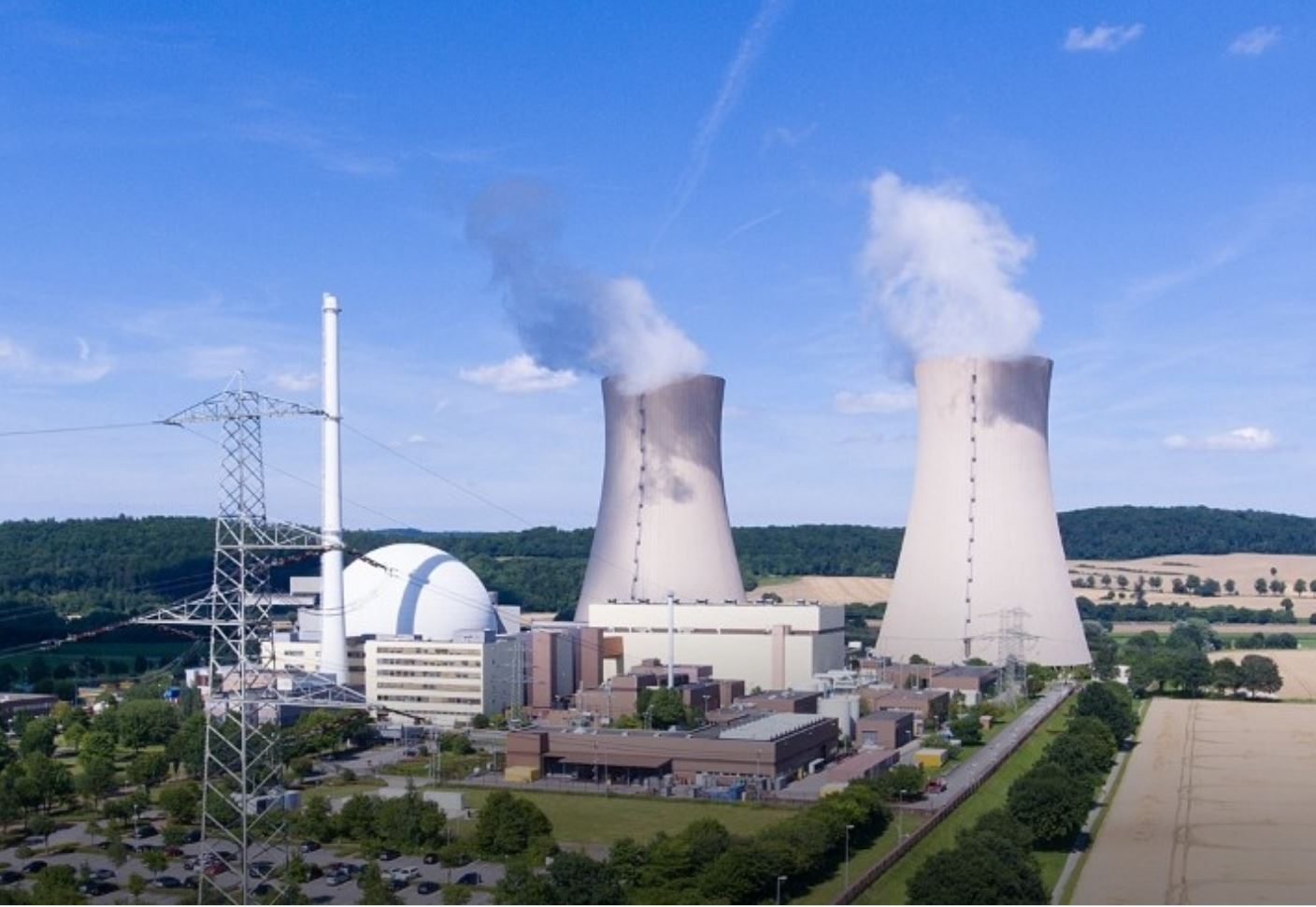Nuclear controversy flares up as Germany shuts down last reactors
Supporters and opponents of Germany’s nuclear power phase-out have used the last week of the technology’s use in the country to underline their respective positions before the three remaining plants are shut down on Saturday (15 April).
In an official statement, the government ministers for the environment, Steffi Lemke, and for the economy and climate action, Robert Habeck, left no doubt that the phase-out will be completed as planned. “Germany ends the age of nuclear power,” the Green Party ministers said. They affirmed that the decommissioning of about four gigawatts of power generation capacity, which accounted for roughly five percent of electricity production in 2022, will not affect energy supply security. “The very high reliability of Germany’s power supply will remain guaranteed.”
The phase-out had initially been slated for completion by the end of 2022, but the European energy crisis fuelled by Russia’s war on Ukraine led chancellor Olaf Scholz of the Social Democrats (SPD) to grant the remaining reactors a runtime extension of about three months to provide additional power generation capacity throughout the winter. Members of the government coalition party Free Democrats (FDP), of the opposition conservative CDU/CSU alliance and industry representatives criticised the step in the last days before its completion, arguing that it would still be irresponsible given the current uncertainties in energy policy. They called to further extend the runtime, or at least to put the plants into a security reserve before deconstruction begins.
In an open letter to chancellor Scholz, a group of influential international scientists, including Nobel laureates and renowned climate researchers, called to postpone the phase-out and keep the remaining plants online “in the interest of the citizens of Germany, Europe and the world.” The three power plants “can supply more than 10 million, or a quarter, of German households with electricity. The resulting reduction in the amount of electricity required from coal-fired power plants could save up to 30 million tons of CO2 per year,” they argued.
Moreover, several surveys, including one by public broadcaster ARD published the day before the final shutdown, revealed that a majority of citizens also oppose the phase-out at this point and would favour another limited extension. However, one of the remaining nuclear plant operators said at the end of last year that further extensions are technically unfeasible due to a lack of fuel rods, staff shortages, and outstanding safety checks.
Environment minister Lemke said the nuclear exit will make Germany safer. “Nuclear power’s risks ultimately cannot be controlled,” she argued, adding that the country now looks at several decades of dismantling old reactors and finding a safe, final storage locations for highly radioactive nuclear waste. “We embark into a new age of energy generation. Let’s keep working on solutions for a nuclear repository and focus all our efforts on expanding renewable power,” said Lemke, who is also responsible for nuclear safety as environment minister. Calls from FDP policymakers to revise the decision – which the party still supported at the end of last year – are not grounded in any legal basis, and the debate about it “is rather politically driven,” she argued in an interview with public broadcaster rbb. Lemke added that renewables have become the cheapest form of power production, which would render concerns about higher prices after the phase-out unfounded.
Economy and climate action minister Habeck stressed that the government is legally obliged to complete the phase-out based on the nuclear exit law, which was decided by a coalition of the CDU/CSU and the FDP after the Fukushima nuclear disaster in Japan in 2011. The step was based on a broad societal consensus supported also by the Greens and the SPD, who had agreed on a first phase-out law already in the year 2000. Energy supply security would be guaranteed thanks to new liquefied natural gas (LNG) import capacities, strengthened transmission grids and especially the “massive expansion” of renewable power sources over the next years. “In 2030, we want to produce 80 percent of our electricity in Germany with renewables” Habeck said. Analyses made by transmission grid operators and the Federal Network Agency (BNetzA) showed that the transition will not compromise the security of supply, he added.
An analysis by consultancy Enervis, commissioned by nuclear-sceptic environmental NGO Greenpeace, found that the runtime extension granted at the end of last year had not been necessary to guarantee power supply. “The already throttled-down power production of the three reactors could have been substituted with available gas-fired power plants at any given time,” Enervis analyst Tim Höfer said. The runtime extension had not benefitted gas savings in a substantial way and reduced national consumption by only about 0.3 percent. At the same time, the reactors did not contribute to carbon emissions reduction in a meaningful way, he added. “Fossil power plants did produce about 2.4 terawatt hours of electricity less thanks to additional nuclear power in the grid. But the corresponding CO2-emissions fell by only 0.2 percent of total emissions.”

